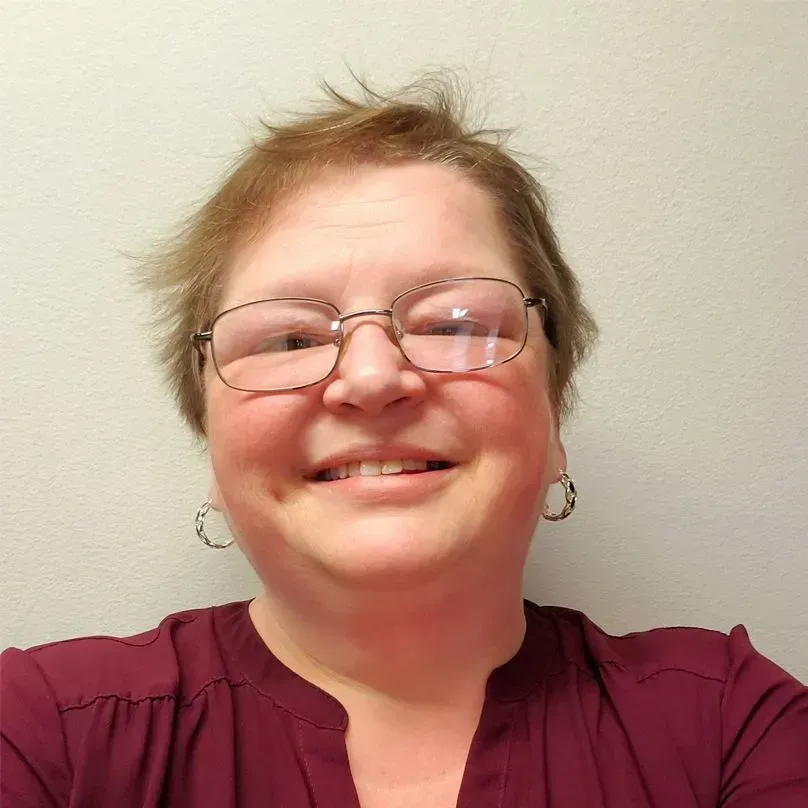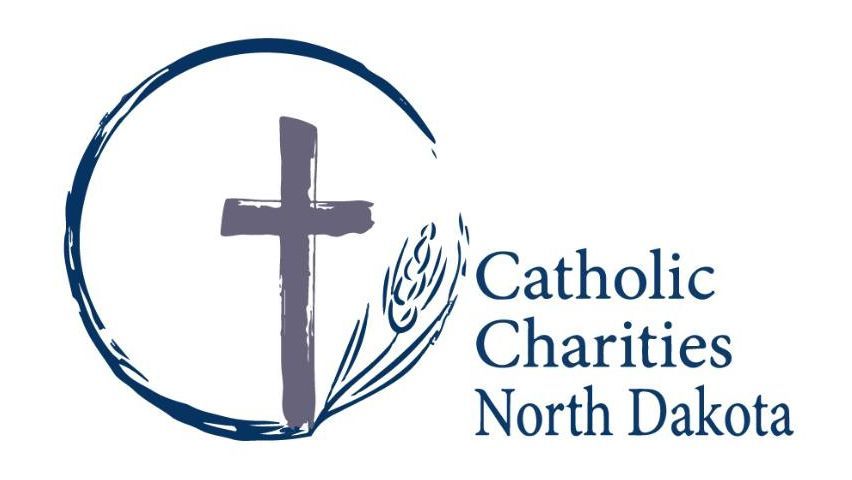Counseling Services
North Dakota
Compassionate Attention for Each Client
Multiple Locations Statewide
Dedicated Services
Request Lorem Epsom
Hero Request Form
Thank you for contacting us.
We will get back to you as soon as possible.
Please try again later.
Meet Our Counselors

Barb Boesl
Clinical Therapist, MED, LPC - Langdon
(701) 256-2354

Emily Nelson
Clinical Therapist, LPC - Bismarck
(701) 255-1793
Region: Bismarck, ND
(accepting new clients in Minot, ND beginning November 17th)
Specialties: Trauma, Anxiety, Depression, Grief, Life Transitions
I work with individuals ages 5-30 through in-person and telehealth sessions. My specialties include trauma, anxiety, depression, grief, and life transitions. I utilize Trauma-Focused Cognitive Behavioral Therapy, Dialectical Behavioral Therapy, and Play Therapy to support clients in building resilience and achieving their mental health goals.

Justus Garneau
Clinical Therapist, LCPC, LPC - Beach
(701) 255-1793
Region:
Beach, ND (Telehealth, North Dakota)
Specialties:
Depression, Anxiety, PTSD, Mental Health
I have extensive experience working with clients ages 8-91 across various settings, including residential, IOP, and outpatient. I am certified in Accelerated Resolution Therapy and specialize in treating depression, anxiety, PTSD, and other mental health concerns. I take a solution-focused and strength-based approach, empowering clients to increase their understanding of their goals and develop skills to navigate future challenges independently. I provide telehealth services for individuals and families.

Noelle Heffley
Clinical Therapist, LPC - Bismarck
(701) 255-1793
Region: Bismarck, ND (In office and Telehealth, ND)
Specialties: Relationship Distress, Anxiety, Depression, Trauma, Couples Therapy
Offering compassionate care for individual adults and couples, I specialize in treating relationship distress, anxiety, depression, and trauma. Trained in Emotion Focused Therapy (EFT) and Somatic Therapy, I bring effective, evidence-based techniques to help clients reach their goals and develop healthy relationships. I also have training in the integration of Christian spirituality with mental health care.

Kathy Johnson
Clinical Therapist, LPCC - Fargo
(701) 255-1793
Region: Fargo, ND (In office and Telehealth, North Dakota. Telehealth not available for MN residents)
Specialties: Trauma, Adolescents, Mental Health
I specialize in trauma and working with adolescents, though I see clients of all ages (excluding children under 7 and those with developmental disabilities such as ASD). Please note that I can see MN clients in the office but am not licensed for telehealth in Minnesota. My goal is to support clients in overcoming trauma and mental health challenges through compassionate, talk-based therapy tailored to individual needs.
Take the First Step Towards Healing with Our Counseling Services
Catholic Charities North Dakota offers compassionate counseling services to support individuals, couples, and families across North Dakota. Our services address a variety of needs:
- Individual counseling
- Couples therapy
- Family counseling
- Grief and loss support
- Trauma-informed care
- Anxiety and depression management
- Stress reduction techniques
- Coping skills development
Begin your journey towards emotional well-being by
contacting us today.
Empowering You Through Professional Counseling
Our counseling services are customized to address each client's specific needs. We recognize the courage it takes to seek help and are here to support you throughout your journey. You may benefit from our counseling services if you are:
- Adjusting to life changes
- Facing relationship challenges
- Grieving a loss
- Feeling stressed or anxious
- Experiencing depression
- Looking for personal growth
- Dealing with adoption-related issues
Our skilled counselors provide a safe, accepting environment for you to explore your thoughts and feelings. Together, we'll develop strategies to promote healing and personal growth.
Why Choose Catholic Charities North Dakota
Catholic Charities North Dakota is a trusted partner in your mental health journey. Here's what makes us unique:
- Over a century of service to North Dakota communities
- COA accredited for quality assurance
- Personalized attention for every client
- Convenient locations across the state
- Services tailored to your specific needs
- Quick response for emergencies
- Holistic approach to well-being
Our counseling services are just one aspect of our commitment to supporting individuals and families throughout North Dakota. We're here to guide and support you through life's challenges and help you achieve emotional well-being.
Contact Us
Starting your journey towards healing and personal growth is just one step away. Our counselors are ready to listen, support, and guide you towards a more fulfilling life. We're here to help with personal issues, relationship struggles, or adoption-related concerns.
Take the first step towards positive change today.
Contact us to schedule your confidential counseling session and begin your path to emotional well-being with Catholic Charities North Dakota.
Depression is intense feelings of sadness, hopelessness, helplessness or worthlessness. These feelings can last for many days, weeks or even months and interfere in your everyday living. These intense feelings can even prevent you from doing what you used to love to do.
How can you benefit from therapy? Therapy helps you take an active role in your treatment. In therapy you can learn what your depression looks like to you. Everyone is different in their symptoms and the therapist will work on helping you understand the symptoms that you are displaying. Together you and the therapist will explore different coping skills and practice how to use these skills. These skills will help you manage symptoms of depression, which can help you enjoy the activities you once loved. Continue to learn more here.
Anxiety is the reaction a person has both mentally and physically to circumstances in life that are stressful, dangerous, or unknown. Stress can come from positive things in a person’s life, such as a new job or relationship. People often benefit from having some low levels of anxiety, helping to motivate them and allowing them to get things done. For some, the anxiety becomes too much and disproportionate to the stressor – this can be unproductive, unhealthy, distracting, and even debilitating. This is when anxiety becomes a disorder. People can feel like they are worrying too much about things, feel restless and pent up, may have difficulty sleeping or slowing their minds down, and might even be irritable. They may avoid places, things or certain people to prevent feelings of anxiety. Physical sensations such as muscle tension, stomach aches, restlessness, and panic might be present. These symptoms are common for people with anxiety and they can be helped.
It can be useful for a person with uncomfortable anxiety to see a therapist to help manage that anxiety better. This can be done through developing and practicing coping skills to counteract the anxiety. Mindfulness and calming strategies can be quite helpful for those suffering with out-of-proportion anxiety. Sometimes cognitive strategies can be used to adjust our perceptions and thoughts about the stresses in our lives. Also, anxiety can feel very isolating and contribute to people feeling alone. They may feel unable or reluctant to share these emotions with family and friends – at these times they might just need someone who will listen. A therapist can do just that. A therapist will work with you to ensure your goals and needs are being met along the way in a competent and compassionate matter.
To read more about anxiety disorders, click here.
To learn more about anxiety symptoms, click here.
Trauma is defined in many was these days. It can defined by the mental health field by an event that has occurred that which can result in an emotional response to an extremely negative event (as defined by the APA). While trauma is a normal reaction to a negative event the effects can be so severe that it can interfere with a person ability to function. Living through the last 6 months we have seen and heard many traumatic events. Based on our past life experiences and current life stressors these may all have an impact on how well we can manage trauma and this current Pandemic.
Part of managing trauma is being able to recognize our ability manage the trauma/stress on our own if we can, some signs and symptoms of trauma are: recognizing when someone is starting to struggling, they may become more depressed or isolate more, more irritable, may be triggered by things that never bothered them before, changes in personalities, serious health problems, these are just a few of the many symptoms that may occur. These could be just some of the signs that family or friends could benefit from professional support from counseling to help with managing all that there are struggling with. Some people are able to manage their trauma on their own and never need to seek professional help. These people have strong resiliency skills and appear less impacted by the trauma.
The best thing we can do as family, friends and community members and is be supportive and understanding that this is a very difficult time for all of mankind. We want to keep grace and kindness at the front lines and remind everyone that we are here for each other and that we are resilient human beings that can make it through this difficult time hopefully a stronger and more loving society.
Counseling Questionnaires
You can take the Brief Trauma Questionnaire by clicking the button below. Please note that the assessments found on this page are self-assessments only and do not constitute medical advice.
Download Appointment Forms
Please call an office near you to schedule an appointment with one of our professionals:
- In Fargo please call (701) 289-2549
- In Minot, please call (701) 852-2854
- In Bismarck, please call (701) 255-1793
- In Langdon, please call (701) 256-2354
- Bullet text
- Bullet text
- Bullet text
- Bullet text
- Bullet text
- Bullet text
- Bullet text
- Bullet text
- Bullet text
- Bullet text
Title or Question
Describe the item or answer the question so that site visitors who are interested get more information. You can emphasize this text with bullets, italics or bold, and add links.Title or Question
Describe the item or answer the question so that site visitors who are interested get more information. You can emphasize this text with bullets, italics or bold, and add links.Title or Question
Describe the item or answer the question so that site visitors who are interested get more information. You can emphasize this text with bullets, italics or bold, and add links.
Title or Question
Describe the item or answer the question so that site visitors who are interested get more information. You can emphasize this text with bullets, italics or bold, and add links.Title or Question
Describe the item or answer the question so that site visitors who are interested get more information. You can emphasize this text with bullets, italics or bold, and add links.Title or Question
Describe the item or answer the question so that site visitors who are interested get more information. You can emphasize this text with bullets, italics or bold, and add links.
Gallery Heading H2
Reviews

COA Accredited for All Adoption Services
Contact Catholic Charities North Dakota today.
Start Your Adoption
Journey Today!
Contact Us

